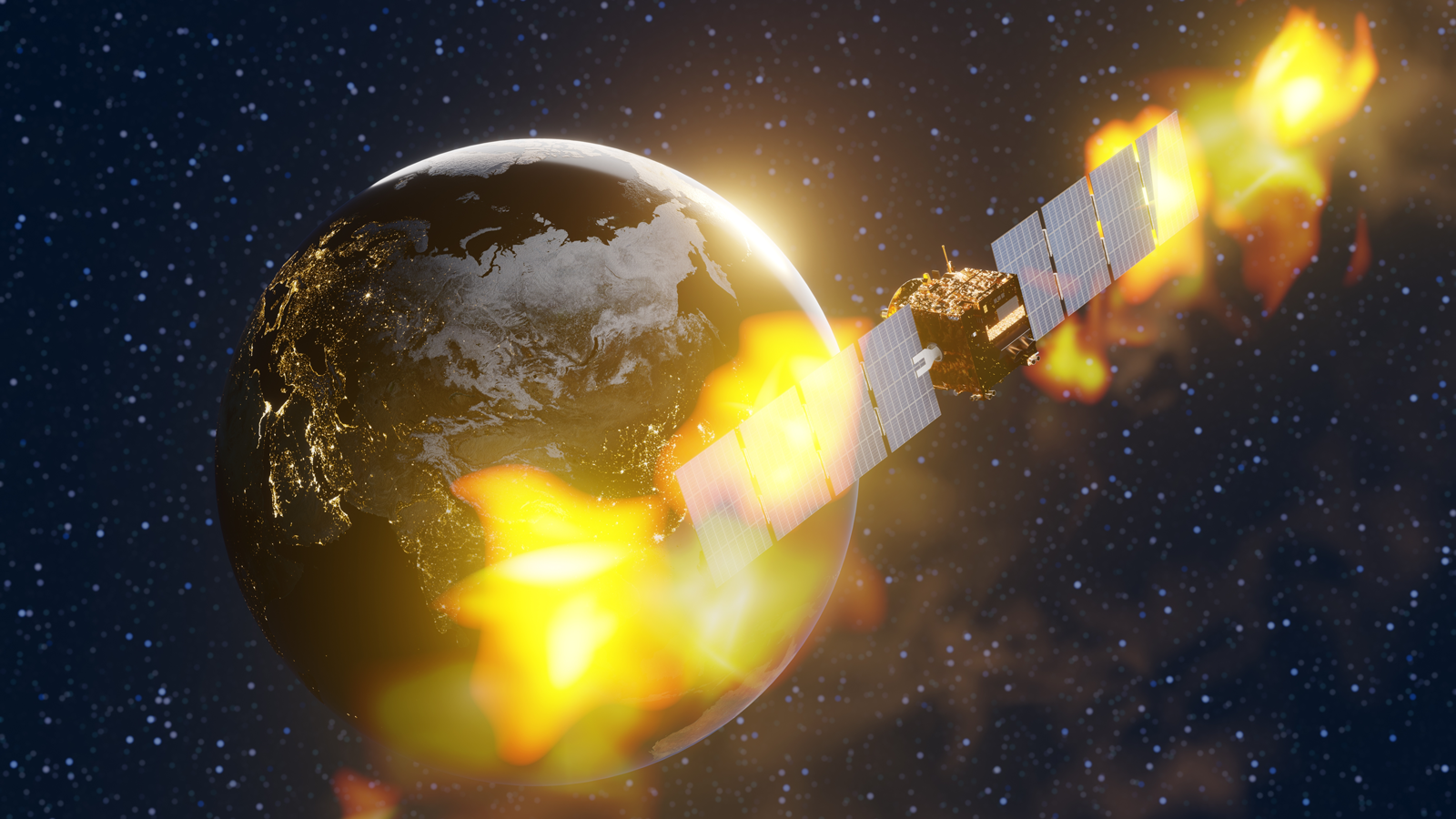
By Jack Loughran, Tue 7 May 2024
Collected at : https://eandt.theiet.org/2024/05/07/singular-nuclear-explosion-space-would-threaten-significant-proportion-satellites
The explosion of just one nuclear weapon in space could destroy or permanently damage “a significant proportion of satellites” that are in orbit around the Earth, the UK’s ambassador to the UN has said.
Dame Barbara Woodward, who was speaking at the UN General Assembly debate on the Outer Space Treaty, said: “The resultant radiation and debris would render many orbits unusable for a very long time.
“There would be highly disruptive and possibly life-threatening consequences for those essential applications, maps, weather [and] risk-monitoring, which would affect all states, not least developing nations.”
Woodward’s comments follow a vote from the UN Security Council in April that rejected a draft resolution introduced by Japan and the US that aimed to prevent the development and deployment of off-world nuclear weapons. While 13 of the 15 members voted in favour of the resolution, China chose to abstain while Russia voted against, causing the motion to fail.
Following Russia’s decision, Dr Michael Mulvihill, vice chancellor research fellow at Teesside University, explained the impact of a nuclear explosion in space to the BBC .
He said that while the typical mushroom cloud explosion would not occur in orbit due to the lack of atmosphere, a nuclear detonation would still release a huge amount of energy as X-rays, gamma rays, intense flows of neutrons and subatomic charged particles. It would also produce an electromagnetic pulse, or EMP, which is capable of destroying or damaging electronic equipment.
Furthermore, following the initial explosion, a belt of radiation would wrap around the Earth, which could persist for years and pose severe health risks to anyone in orbit, such as astronauts aboard the International Space Station.
“There was nothing in this resolution that any law-abiding state committed to peace and the prevention of an arms race in outer space could reasonably object to,” Woodward continued. “And yet Russia did. This is not the first, but the second draft council resolution on nuclear non-proliferation [that] Russia has vetoed in just one month.”
The number of satellites in low-Earth orbit is expected to increase dramatically over the next few years, and many countries including the UK are staking huge amounts of investment in growing a domestic sector to enable rapid satellite deployment.
Space debris is another growing problem that threatens orbiting satellites. As the amount of orbiting debris increases, so does the risk that some of it will collide with manned and unmanned space assets. It is estimated that around one million pieces of debris larger than 1cm are in Earth’s orbit, and around 100 trillion pieces of old satellite are not being tracked.

Leave a Reply